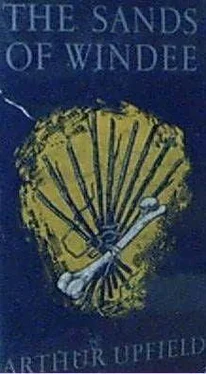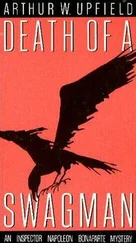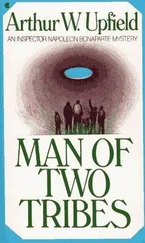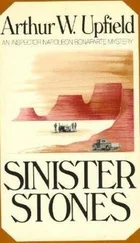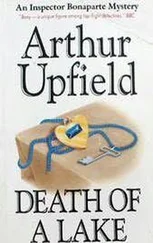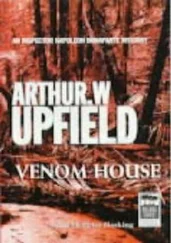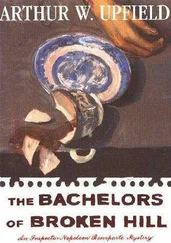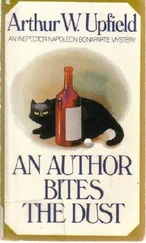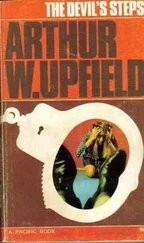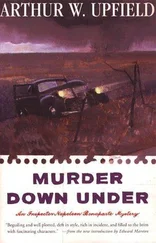Arthur Upfield - Sands of Windee
Здесь есть возможность читать онлайн «Arthur Upfield - Sands of Windee» весь текст электронной книги совершенно бесплатно (целиком полную версию без сокращений). В некоторых случаях можно слушать аудио, скачать через торрент в формате fb2 и присутствует краткое содержание. Жанр: Классический детектив, на английском языке. Описание произведения, (предисловие) а так же отзывы посетителей доступны на портале библиотеки ЛибКат.
- Название:Sands of Windee
- Автор:
- Жанр:
- Год:неизвестен
- ISBN:нет данных
- Рейтинг книги:3 / 5. Голосов: 1
-
Избранное:Добавить в избранное
- Отзывы:
-
Ваша оценка:
- 60
- 1
- 2
- 3
- 4
- 5
Sands of Windee: краткое содержание, описание и аннотация
Предлагаем к чтению аннотацию, описание, краткое содержание или предисловие (зависит от того, что написал сам автор книги «Sands of Windee»). Если вы не нашли необходимую информацию о книге — напишите в комментариях, мы постараемся отыскать её.
Sands of Windee — читать онлайн бесплатно полную книгу (весь текст) целиком
Ниже представлен текст книги, разбитый по страницам. Система сохранения места последней прочитанной страницы, позволяет с удобством читать онлайн бесплатно книгу «Sands of Windee», без необходимости каждый раз заново искать на чём Вы остановились. Поставьте закладку, и сможете в любой момент перейти на страницу, на которой закончили чтение.
Интервал:
Закладка:
Runta was ignorant of some things but cognizant of others. It appeared that Ludbi was out hunting. He carried a rifle. He was north of the junction of the two roads when he heard a car coming from the direction of the homestead. He heard the car almost stop and move on again, and then suddenly he saw the car coming through the bush and two men fighting in the front seat.
Runta said that Ludbi saw one of them killed, but how he was killed, by whom, and what happened after she did not know, for Ludbi had held long confab with Moongalliti, and Moongalliti had threatened him-or any one else-with the pointing-bone if he, or she, spoke a word to a living soul of what Ludbi had seen.
Poor Runta never realized that she had told Bony all this, for the threat of the pointing-bone was tantamount to a sentence of death. What the detective had learned through her was both much and little. It was corroboration of his conviction that Marks had been killed, but did not give him the name of the killer. The only additional confirmatory fact he had obtained was that the killer was a white man, not indicated by the fan-stick sign.
This single fact deepened rather than lightened the mystery. The act being a murder of a white man committed by a white man, what was behind Moongalliti’s sudden failure of tracking powers and his threat of the pointing-bone against any of his tribe who told the little they knew? How came the blacks to be mixed up in an affair entirely white?
The more he delved into the sand of this case the greater became the quantity of sand which fell in to smother his excavations. To the main issue the mystery of the sapphire and the mystery of Moongalliti’s orders were added. Bony was delighted. He went about his work singing in a cracked voice, and sometimes playing quick jazz tunes on a box-leaf. He smiled on Runta and playfully poked the rolls of fat beneath which somewhere were her ribs. He saw several of the bucks and Moongalliti talking with Stanton one afternoon, saw them take a station hand-cart and proceed with it to the store. Later they dragged it past the kitchen loaded with two bags of flour and a case of jam. The corroboree would be held the next night.
Chapter Seventeen
The Corroboree
AT NOON on the day of the corroboree a bunch of half-naked aboriginal children clustered in the shade cast by a solitary box-tree growing well away from the main avenue bordering the creek. Several of the older boys were sitting in the branches, and children on the ground constantly called out an ever-repeated question.
All these children had an uninterrupted view of the plain, and the direction of their searching looks was north-east. At all times they could see ten to a dozen thin columns of grey and red dust staggering slowly across the vast expanse from west to east; for the miniature whirlwinds twisted up dust and debris at times as high as two hundred feet.
And then suddenly one of the boys in the tree gave a shout, and the others became silent. Far out on the plain dust rose and slanted eastward-dust not caused by a whirlwind, a flock of sheep, or a mob of racing horses, but slowly and steadily rising dust from human feet. It arose from one point and remained there steadily, for the marchers were making straight for the outpost tree.
At five Moongalliti, with his bucks marshalled on either side of him and the women and children behind them, waited at the edge of the timber belt to welcome their adjoining tribe. The strangers came forward slowly, obviously tired, yet excited as well. In numbers they equalled Moongalliti’s people, the chief leading, behind him his bucks, carrying spears and warmurrawirries, and behind them the women, loaded as Egyptian donkeys, with their own belongings as well as those of their lords.
Fifty yards from the home tribe the strangers halted, and the strange chief, Mertee, and Moongalliti, walked forward to meet each other, weaponless. What each of them said at the same time was something like:
“Oo-la-oo-la-um-yum-oo-la-oo-la!” spoken very rapidly without pause or cessation. They flung their arms about each other’s naked bodies, hugged and danced on their big-footed, thin, spindly legs, and grunted.
“Oo-la-oo-la-um-yum-oo-la-oo-la!”
The official wording of the welcoming ceremony was double Dutch to Bony, standing with some of the men nearby-they having agreed to postpone their dinner for one hour; and itwas double Dutch to Jeff Stanton and Marion, who, seated in the big car, watched from a greater distance. The meeting of the two head-men was one of extravagant affection, and after about five minutes’ hugging and “oo-la-ing” Moongalliti and Mertee walked towards the former’s people, with Mertee’s tribe hurrying after them, no longer in ordered array, but a couple of mobs.
The two mobs intermingled with happy yells and shrieks of laughter, whilst children eyed stranger children gravely, considering whether to fight or be friends. And then, like a slow-moving “whirlie” of black sand carrying in its swirl the flecks of white and blue and red gaudy feminine raiment, the whole rolled towards the creek, flowed down into its bed, surged up on the farther bank, skirted the water-hole, and ranged itself about a mound of glowing embers before settling into comparative stillness-and silence.
At a short distance from the fire the banquet was set out on sheets of bark, flattened petrol-tins, and disused saucepans and colanders rescued from the station rubbish-heap, arranged in a circle. Jeff Stanton’s flour, mixed with water, had been baked in the likeness of rocky slabs, doubtless of rocklike hardness as well. Quartered kangaroo, sheep’s offal, goannas, yabbies from the water-holes, bush yams, and enormous emu legs, lay in mixed profusion, piping hot, around the rock-bread.
Forming a circle outside the food circle, the bucks sat cross-legged. Behind each buck sat his woman or women, and again behind them the children. The widows and spinsters-there were remarkably few, for a reason that shall be mentioned-crept to the side of their more fortunate sisters who shared with none the love and thrashings of their lords.
No toastmasters or other makers of ceremony being present, no time was lost in useless civilities. The bucks seized those items of the menu which tempted most their individual palates, and for a while those behind them listened with ill-concealed impatience to smacking lips and crunching teeth. And then from the inner circle there appeared to slide yard-long bones with great lumps of meat still adhering to them, whereupon shrill feminine cries raised in argument and the yells of clamouring children on the outermost human circle competed with the yelps and barks of a hundred dogs of all sizes and mixed pedigrees which hemmed in the diners with a cloud of stifling dust.
It will now be understood that the spinsters and widows experienced a lean time, since what they got had to be snatched from the hands of wives who had babies and children to feed from what they left.
At the chiefs’ table was shown a little more decorum. They ate from one dish a mixture of Bony’s bread, two legs of mutton, a great quantity of white, slug-like tree-grubs calledbardees, two small piles of honey ants swollen to the size of peas with the native bee honey showing through their transparent bodies, yams, and one enormous goanna some six feet in length. Behind them sat their respective wives and families.
One by one the bucks stretched themselves and sighed. One by one they lit most evil-smelling pipes or roughly made cigarettes, and at a gutturally spoken command the remains of the banquet-and the remains were by no means small in quantity if lacking in quality-were passed to the women, who broke up into groups and fed. One by one the women stretched and sighed, and lit old pipes and cigarettes-charged chiefly with cow-dung-and, a little while after, one by one the children sighed and stretched and rolled over on their backs. All hands slept torpidly, whilst the countless dogs scratched among them for scraps and bones.
Читать дальшеИнтервал:
Закладка:
Похожие книги на «Sands of Windee»
Представляем Вашему вниманию похожие книги на «Sands of Windee» списком для выбора. Мы отобрали схожую по названию и смыслу литературу в надежде предоставить читателям больше вариантов отыскать новые, интересные, ещё непрочитанные произведения.
Обсуждение, отзывы о книге «Sands of Windee» и просто собственные мнения читателей. Оставьте ваши комментарии, напишите, что Вы думаете о произведении, его смысле или главных героях. Укажите что конкретно понравилось, а что нет, и почему Вы так считаете.
